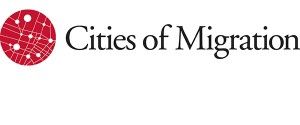
Cities of Migration identifies and showcases successful local practices and policy innovation from global cities that promote immigrant integration, inclusive communities and shared urban prosperity. Through evidence-based research and analysis, peer-to-peer learning exchange and a growing network of city and community leaders, we are building an international consensus around a simple idea: migration is a critical dimension of urban prosperity and growth. By increasing the effectiveness of local integration practices and the policy frameworks that support them, and helping urban and migration networks develop stronger ties, we hope to advance the place of cities in migration policy internationally.
Its main activities/features include:
- Good Ideas in Integration @ Cities of Migration.ca. Over 250 profiles of successful integration practice and policy innovation from 80+ cities (English, French, German and Spanish);
- Learning Exchange. A monthly series of webinars that brings local integration actors together for city-to-city information sharing and peer learning –with no carbon footprint;
- Conversations in Integration. A bi-monthly newsletter offering good ideas, opinion, promising local practices, reports and news to migration experts and practitioners around the world;
- Municipal Leadership report series. A compendium of good practice, country reports and “Practice to Policy” analysis by international experts explore the institutional authority, policy levers and leadership of local governments on immigrant integration.
Join our Global Network. Subscribe to our newsletter, and follow us on Twitter and Facebook.
Visit the Cities of Migration website.
History
Cities of Migration is an international initiative launched by the Maytree Foundation and partners in 2008 to identify and disseminate local integration practice in major immigrant receiving cities worldwide. The project was the first to link global cities around issues of immigrant integration and has been surprisingly successful. Today, Cities of Migration has an international following of over 7000 international experts, practitioners and policy-makers. In 2010 and 2014 we hosted international conferences in The Hague and Berlin, and in September 2014 helped launch the Global Diversity Exchange at Ryerson University.

